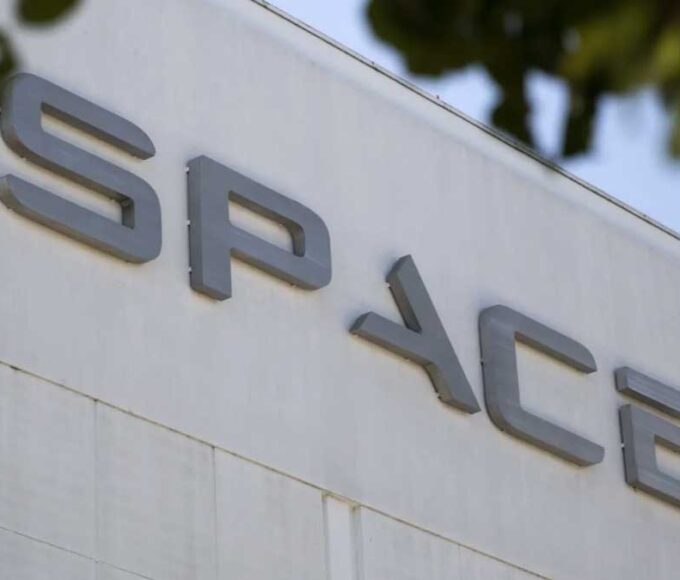- Home
- Billionaires
- Investing Newsletters
- 193CC 1000
- Article Layout 2
- Article Layout 3
- Article Layout 4
- Article Layout 5
- Article Layout 6
- Article Layout 7
- Article Layout 8
- Article Layout 9
- Article Layout 10
- Article Layout 11
- Article Layout 12
- Article Layout 13
- Article Layout 14
- Article Sidebar
- Post Format
- pages
- Archive Layouts
- Post Gallery
- Post Video Background
- Post Review
- Sponsored Post
- Leadership
- Business
- Money
- Small Business
- Innovation
- Shop
Recent Posts
Billionaires Boost NASA’s Moon Mission

Houston-based Intuitive Machines is poised to make history as the first private company to land on the moon’s surface this month. Backed by billionaire Kamal Ghaffarian, the company is part of NASA’s strategy to partner with private firms to unlock the moon’s potential, reduce costs, and stimulate the space economy.
NASA’s Artemis program, aimed at returning humans to the moon, has enlisted 14 American companies to deliver scientific instruments and technology to the lunar surface. Astrobotic Technology, based in Pittsburgh, was among the first to join the program in 2018 but faced a setback when its Peregrine mission failed due to a fuel leak. The upcoming launch on Feb. 15, led by Intuitive Machines, highlights the growing role of private companies in space exploration. Intuitive Machines, with a net worth of $2.3 billion, is pioneering new avenues in space-related ventures.
Sierra Nevada Corporation, led by billionaire couple Eren and Fatih Ozmen, joined the program in 2019 but has yet to secure a CLPS contract. Similarly, Elon Musk’s SpaceX and Jeff Bezos’ Blue Origin, both added in 2019, are yet to be awarded contracts under CLPS, despite their significant contributions to the space industry. The CLPS program allows participating companies to bid for NASA contracts, with 10 contracts already awarded for missions to deliver material to the moon. Astrobotic and Intuitive Machines have secured contracts for missions in 2024, while Firefly Aerospace, based in Texas, is set to launch its Blue Ghost lander to the moon’s Mare Crisium basin in 2024.
Moon Express, cofounded by Naveen Jain, secured permission from the US government in 2016 to land on the moon, with plans to mine it for water and minerals, referring to it as “Earth’s 8th continent.” NASA’s collaboration with private companies marks a significant shift in space exploration, moving away from exclusive government-led missions. By fostering the budding space economy and driving competition, NASA aims to lower costs and pave the way for future missions to Mars and beyond. Despite the challenges and risks associated with space exploration, private companies are driving innovation and pushing the boundaries of what is possible. Intuitive Machines’ upcoming IM-1 mission could mark a milestone in space exploration, with the potential to inspire a new era of lunar exploration and beyond.
The $2.6 billion maximum value of NASA’s CLPS contracts through 2028 demonstrates the agency’s commitment to commercial partnerships. Companies are encouraged to “fly commercial payloads,” showcasing the potential for collaboration beyond NASA’s initial contracts.
As private companies like Intuitive Machines, SpaceX, and Blue Origin continue to make strides in space exploration, the future of lunar and interplanetary missions looks promising. With competition among billionaires driving innovation, the possibilities for space exploration are limitless.
Recent Posts
Categories
- 193cc Digital Assets2
- 5G1
- Aerospace & Defense46
- AI37
- Arts3
- Banking & Insurance11
- Big Data3
- Billionaires462
- Boats & Planes1
- Business328
- Careers13
- Cars & Bikes76
- CEO Network1
- CFO Network17
- CHRO Network1
- CIO Network1
- Cloud10
- CMO Network18
- Commercial Real Estate7
- Consultant1
- Consumer Tech180
- CxO1
- Cybersecurity68
- Dining1
- Diversity, Equity & Inclusion4
- Education7
- Energy8
- Enterprise Tech29
- Events11
- Fintech1
- Food & Drink2
- Franchises1
- Freelance1
- Future Of Work2
- Games141
- GIG1
- Healthcare78
- Hollywood & Entertainment186
- Houses1
- Innovation42
- Investing2
- Investing Newsletters4
- Leadership65
- Lifestyle11
- Manufacturing1
- Markets20
- Media193
- Mobile phone1
- Money13
- Personal Finance2
- Policy567
- Real Estate1
- Research6
- Retail1
- Retirement1
- Small Business1
- SportsMoney33
- Style & Beauty1
- Success Income1
- Taxes2
- Travel10
- Uncategorized8
- Vices1
- Watches & Jewelry2
- world's billionaires431
Related Articles
Universe Expanding Faster Than Expected, New Data Shows
Recent findings from the James Webb Space Telescope (JWST) have confirmed something...
By 193cc Agency CouncilDecember 10, 2024Russian Soldier Life Expectancy: One Month Amid Losses
In the ongoing war between Russia and Ukraine, a stark reality faces...
By 193cc Agency CouncilNovember 29, 2024Trump Joins Elon Musk for SpaceX Starship Test Flight
President-elect Donald Trump is expected to attend the latest launch of SpaceX’s...
By 193cc Agency CouncilNovember 19, 2024SpaceX Launches Dragon to Rescue Stranded Astronauts
SpaceX’s Dragon spacecraft launched successfully from Cape Canaveral, Florida, on Saturday afternoon,...
By 193cc Agency CouncilSeptember 28, 2024















Leave a comment